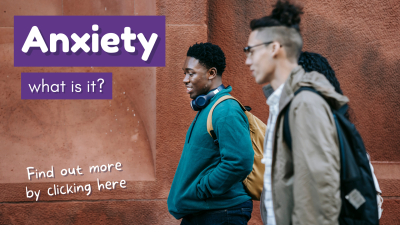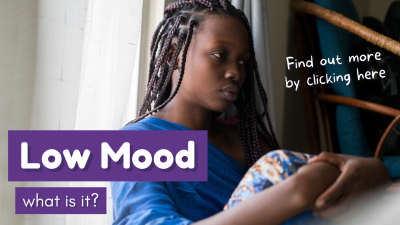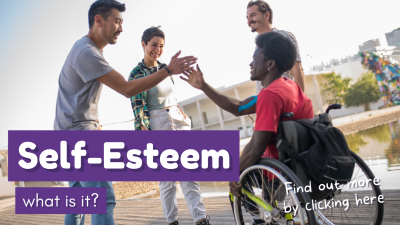Sexuality & Gender Identity
Are you unsure of your identity?
If you're questioning your gender identity or sexuality, or you are looking for some support, you are not alone and your experiences are valid! Read on to learn more about ways we can identify and to find local and national support services.


Who am I?
At some point in our lives, we all find ourselves asking this. Questioning your identity can be confusing, upsetting or uncomfortable. But it’s ok to be unsure. No matter how you feel, you are wonderful just as you are! Click through to learn more about different identities.
All of this information has been drawn together with the help of young people.
These pages aim to help you to:
- Understand more about different types of identity including sexuality and gender identity
- Learn how community and acceptance can help you
- Learn how to accept yourself for who you are


What is identity?
Everybody is made up of different interconnecting identities. Everything from your race, religion and class to the sports team you support and much more, fit together to make you you.
Many people will question their gender or sexual identity at some point in their life. But what are they and what is the difference? Scroll down to find out more.
Definitions – gender
Gender identity is about how we personally experience our gender. When we’re born, a doctor will decide whether we are a boy or a girl based on the way our body looks- this is often called our biological sex. But sometimes the biological sex we are born with doesn’t match up with how we feel inside. Gender is about your own sense of self and who you feel you are inside.
Below are some terms that might be useful:
- Transgender or trans: Somebody who doesn’t identify with the gender they were assigned at birth.
- Non-binary: Non-binary means somebody who doesn’t identify with either male or female.
- Cisgender or cis: Somebody who identifies with the gender they were assigned at birth.
There are lot of misunderstandings around gender - as long as you feel comfortable in your own skin, that's all that matters!

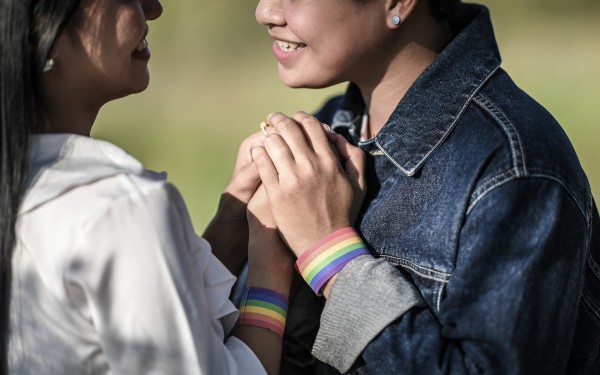
Definitions – sexuality
Sexuality or sexual orientation is about who you fancy or feel attracted to. Some people will fancy people of the same gender as themselves, or another gender or more than one gender. Some people don’t feel attracted to anybody at all.
Some people will find it useful to give a label to how they’re feeling but others prefer not to.
Labels you might identify with are:
- Gay: Refers to someone who fancies someone of the same gender as themselves.
- Lesbian: Refers to a girl who fancies girls. Some girls will prefer the label ‘gay’.
- Bisexual or bi: Somebody who is attracted to more than one gender.
- Pansexual or pan: Somebody who is attracted to people’s personality regardless of their gender.
- Asexual or ace: Somebody who feels little or no sexual attraction. They may still want emotionally intimate relationships but do not see sex as a key part of that attraction.
- Heterosexual or straight: When a girl fancies boys or a boy fancies girls.
Remember that this list is just a few different labels. Sexuality isn’t a ‘one size fit’s all’ so don’t worry if none of the labels feel comfy for you.
Is it 'normal' to feel this way?
Find out how others feel about their identity and how you can help yourself.


Am I 'normal'?
It is normal to question your identity. Everybody will experience gender and sexuality differently. Although labels such as “gay”, “lesbian”, “transgender” etc. are useful to some, sexuality and gender are all on a spectrum. This means there is no right way to experience your sexuality or gender identity.
No matter who you are attracted to or how you identify, you are deserving of love and acceptance.
Scroll down to hear how other young people have managed their feelings.
You are not alone...
Other young people have struggled with these feelings too. Watch this video to hear some of their stories.
Scroll down for our self-prescription below to work out how you can help yourself!

Try our self prescription below now.
Find help, tips and ideas.
How can I help myself?
We have put together a few useful resources on how to cope when questioning your identity.
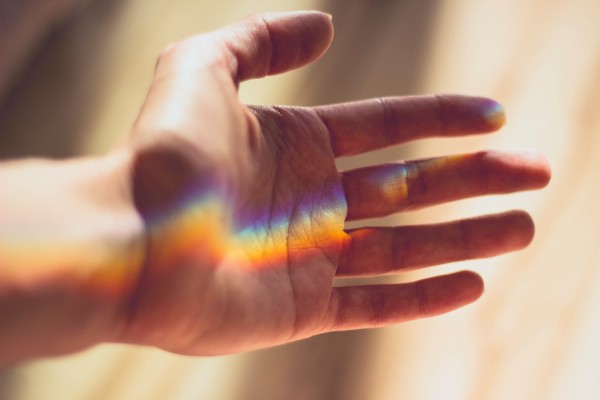

Step 1. Get support from someone you trust
'Coming out' can be scary even with the people you trust, but hiding our true selves can be hard. Remember: you never have to share your identity with someone if you don't want to. Some choose to come out to everyone, just a few people or to no one at all - it’s up to you.
If you do want to share how you’re feeling with someone, there are a few things to consider:
- Who: Who do you think will be the most understanding person to tell? This could be a friend, teacher, family member or someone else.
- Where: Where do you feel most comfortable or safe? That will be different for everyone. It might even be online rather than in person.
- How: How will you tell them? In person, over the phone, in a text or letter?
- When: Remember that some people might be surprised by what you tell them so it’s good to find a time when you can talk it over properly.
You can’t always control how people will react to you sharing your identity with them. It’s important you have a back-up plan if it doesn’t go as you’d hoped.
This can mean making sure you have somewhere safe to go afterwards. No matter how it goes, your identity is still important, and you are still deserving of respect and love.
If you need urgent help at any point, please click on our 'Help Now' button at the top right of the page for crisis service information.
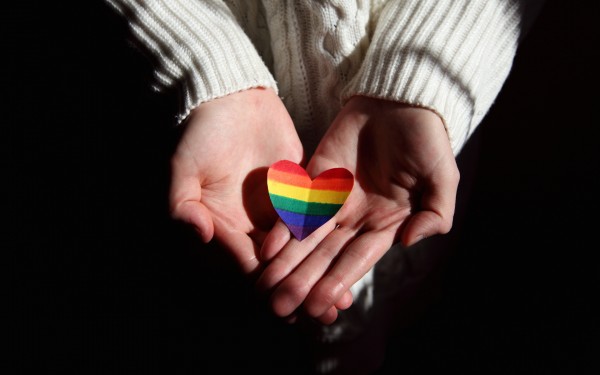

Step 2. Find community support
Sometimes questioning your identity can feel lonely. But the chances are, lots of people feel the same way. Finding community can be a great way to get support and talk to people who understand what you’re going through.
- The Proud Trust's Proud Connections offer support for LGBT+ young people and the adults in their lives. Their nationwide service includes a Live Chat for online help, online sessions with trained LGBT+ adult mentors, and online peer support groups for parents and carers.
- The Switchboard provide information, support and a referral service for anyone considering issues around their sexuality and/or gender identity. You can contact the switchboard by phone, direct message or by email.
Find community support (continued)
Online forums and other online support can be good place to find your community. Some find it useful to talk to people who are separate from their day-to-day life.
Remember to stay safe online – you should never share personal details like your address, full name or school online or any passwords.
You might also find support in your day-to-day today life. There might be a safe space at school for people who are questioning their identity like an LGBT club or a local support group or youth group outside of school.
You can find local services here:


Step 3. Keep a diary
Putting your thoughts down on paper is a good way to stop your thoughts from becoming overwhelming.
Try writing down some things that you like about yourself or a list of things you are good at/have achieved.
Here are some ideas of things you could write:
- I believe in myself
- It’s ok to be unsure
- I don’t need to be perfect
- I am happy being me
You can look back on your thoughts and reflect on how they change over time.
Step 4. Practice self-care
When you’re feeling low it’s really important to look after yourself.
Try doing something nice for yourself at least once a week. This could be something you’re good at or something that makes you feel relaxed. That might be:
- Watching your favourite tv show
- Listening to music
- Doing an art project
- Taking a relaxing bath
- Practicing some breathing or meditation exercises
- Taking a walk in nature like a park or the beach
Remember that it's okay not to be okay all the time, so treat yourself gently.
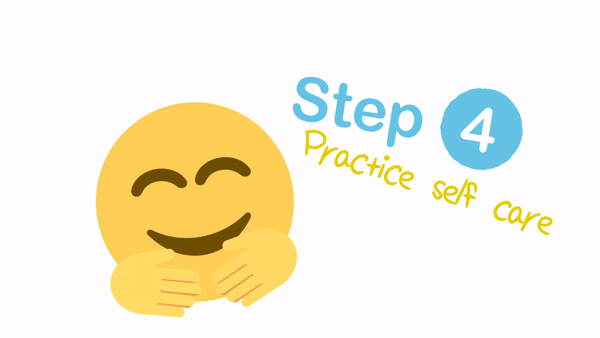

Step 5. Be brave and get help!
It’s never OK for someone to discriminate against you because of your identity. This can be described as bullying, homophobia, or transphobia.
Bullying covers lots of different things; it could be:
- someone physically hurting you,
- someone saying horrible things or threatening you,
- someone always excluding you from things and isolating you.
Accepting yourself can be tough if you have been bullied.
If you are being bullied or experiencing homophobia or transphobia, it’s important to tell someone you trust so that you can get support. Some types of bullying are illegal and it’s important that someone else can help you deal with this.
If you don’t feel like you have anyone to turn to, look up local support that is available in your area. You can also call Childline free on 0800 1111 to speak to someone.

Get Help
Struggling with your identity is not a mental health condition in itself but experiencing isolation or bullying over a period of time can affect your mental health.
If you are feeling very low or anxious and you feel this way all the time or it is affecting your day to day life, it’s important to speak to your GP.
There are some services that can help you but it’s a good idea to speak to someone you trust first so that you have some support in your day to day life.
If you would like support around your sexuality or gender identity, Allsorts Youth Project is a good place to start.
To find mental health service near you, click here.
